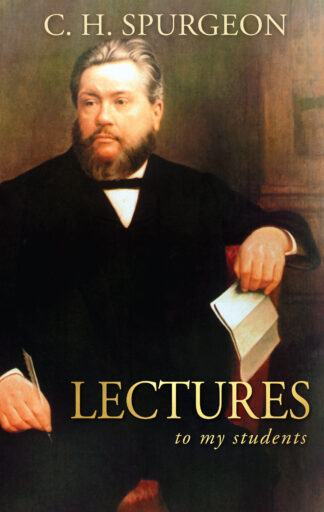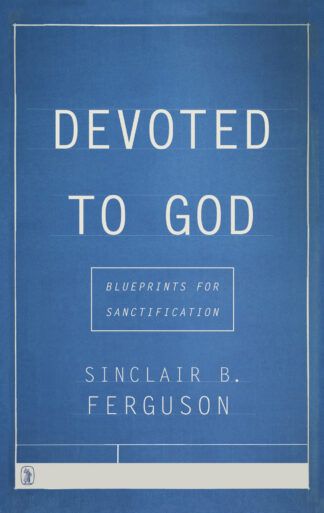Growing in Grace: A Word to Theology Students
Charles H. Spurgeon, in his work, Lectures to my Students, speaks of the minister who preached so well and lived so badly. When he was in the pulpit, everybody said he ought never to come out again. And when he was out of it, they all declared he ought never to enter it again. Then Spurgeon adds, ‘the voice of Jacob will do little good if the hands be the hands of Esau.’
As beginners in the study of theology, you may not yet realize the impact of Spurgeon’s warning. But, as Helmut Thielicke has also written, studying at a theological college is like putting on a suit of armour. It can equip us to be soldiers of Christ or it can be a coat of mail in which we freeze to death. Christian soldiers or corpses!
B. B. Warfield, in his classic essay on ‘The Religious Life of Theological Students,’ offered wise words in this regard. ‘There is something certainly wrong with the religious life of a theological student who does not study. But it does not quite follow that therefore everything is right with his religious life if he does study. It is possible to study — even to study theology — in an entirely secular spirit. . .’ Warfield’s answer to the dilemma? ‘Put your heart into your studies. Do not merely occupy your mind with them, but put your heart into them. . . You will never prosper in your life in the Theological Seminary until your work in the Theological Seminary becomes itself to you a religious exercise out of which you draw every day enlargement of heart, elevation of spirit, and adoring delight in your Maker and your Saviour.’ (Selected Shorter Writings of Benjamin B. Warfield, Vol. 1, Presbyterian and Reformed, 1970, pp. 416-417).
How does one do that? 2 Peter 3:18 suggests part of the answer. ‘But grow in grace and in the knowledge of our Lord and Saviour Jesus Christ.’ The point here is not the undermining of the security of our faith, but the correcting of the idleness of our faith.
‘Keep growing’ suggests Peter’s use of a particular Greek tense in connection with his command to ‘grow’. The Christian faith is like riding a bicycle. If you don’t keep moving, you’re in trouble. The emphasis here is on the continuous nature of this growing process. It is not a once-for-all ‘Let’s-have-a-little-growth-today-and-that’s-that’ sort of thing. It is a question of continuously deepening growth.
There is surely more involved in this text than a neat description of sanctification. Peter is opening a door to the fulfilment of Old Testament promise. Growth, said the Old Testament, was something to be looked forward to in the coming great day of God. The pages of the book of the old covenant close on a bitter, dark day. God pledges, through Isaiah, he will break down the wall of his vineyard. ‘I will remove its hedge and it will be consumed; I will break down its wall and it will become trampled ground. And I will lay it waste; it will not be pruned or hoed. But briars and thorns will come up’ (Isaiah 5:5-6). But this will change, says Isaiah. ‘The mountains and the hills will break forth into shouts of joy before you, and all the trees of the field will clap their hands. Instead of the thorn-bush the cypress will come up; and instead of the nettle the myrtle will come up’ (Isaiah 55:12-13). Growth is coming. The wilderness will become a fertile field and the fertile field will be considered as a forest. Then justice will dwell in the wilderness and righteousness will abide in the fertile field (Isaiah 32:15-16). Ezekiel saw the mountains of Israel putting forth their branches and bearing fruit in the day of the new covenant (Ezekiel 36:8-10). Jeremiah saw an end ‘in the coming days’ to ‘plucking up, breaking down, overthrowing, destroying, bringing disaster.’ The Lord was going to sow, to build and to plant (Jeremiah 31:27ff).
When? When will this day of growth come? When will the mustard seed of the kingdom grow into a shrub larger than all others (Matthew 13:31-32)? Who will come to sow the seed of the word of the kingdom (Mark 4:14)? Who is the one whom Luke thinks of when he thinks of growth? It is that one who ‘kept increasing in wisdom and stature and in favour with God and man’ (Luke 2:52).
It is this Redeemer, says Peter, who has begun the day of growth, and in whom that growth centres. ‘Grow in our Lord and Saviour Jesus Christ.’ This means more than systematic theology textbooks, and more, even, than growing in Christian character and goodness. We must not treat as abstracts words like ‘grace’ and ‘knowledge’. We must not bleed the life out of those phrases till they become mere concepts. The law came by Moses but grace is another name for Jesus (John 1:17). Knowledge and wisdom have no meaning apart from the Person who is sanctification and wisdom to us (1 Cor 1:30).
Peter here may very well be thinking of what Paul thought of when he spoke so frequently of that state of being ‘in Christ’. To ‘grow in the grace and knowledge of our Lord and Saviour Jesus Christ’ is to grow in the grace and knowledge of a new reality, the reality of that one who has put a new face on history (2 Corinthians 5:17), who by his substitutionary death and resurrection is recreating his people. Growing in the grace and knowledge of Christ is growing within the saving rule of Christ. It is growing in a new environment, a new order in history, a new situation.
And that environment is not merely the grace which Christ gives, or the grace whose object is Christ. It is the grace which is Jesus Christ himself. Peter is talking here about a ‘new embryo for a total new race and a whole new creation.’ And the embryo is our Lord and Saviour Jesus Christ.
Brothers in Christ, do not let the studies you have begun delude you. Be on your guard lest you fall from your own steadfastness. But grow in Christ.
Robert Murray M’Cheyne wrote these words to a minister friend of his who was studying German very diligently at the time. The language could have been Greek or Hebrew, for the advice would have been the same. ‘I know you will apply hard to German, but do not forget the culture of the inner man — I mean of heart. Remember you are God’s sword, his instrument — I trust, a chosen vessel unto him to bear his name. In great measure, according to the purity and perfection of the instrument, will be the success. It is not great talents God blesses so much as likeness to Jesus. A holy minister is an awful weapon in the hand of God.’ In the warning words of B. B. Warfield, ‘there is no mistake more terrible than to suppose that activity in Christian work can take the place of depth of Christian affection.’
This article was first published in the December 1972 edition of the Banner of Truth magazine.
Helps for Students

Description
Charles H. Spurgeon, in his work, Lectures to my Students, speaks of the minister who preached so well and lived so badly. When he was in the pulpit, everybody said he ought never to come out again. And when he was out of it, they all declared he ought never to enter it again. Then […]

The St Andrews Seven
the finest flowering of Missionary Zeal in Scottish History
Description
Charles H. Spurgeon, in his work, Lectures to my Students, speaks of the minister who preached so well and lived so badly. When he was in the pulpit, everybody said he ought never to come out again. And when he was out of it, they all declared he ought never to enter it again. Then […]

Description
Charles H. Spurgeon, in his work, Lectures to my Students, speaks of the minister who preached so well and lived so badly. When he was in the pulpit, everybody said he ought never to come out again. And when he was out of it, they all declared he ought never to enter it again. Then […]
Latest Articles
On the Trail of the Covenanters February 12, 2026
The first two episodes of The Covenanter Story are now available. In an article that first appeared in the February edition of the Banner magazine, Joshua Kellard relates why the witness of the Scottish Covenanters is worthy of the earnest attention of evangelical Christians today. In late November of last year, on the hills above […]
A Martyr’s Last Letter to His Wife February 11, 2026
In the first video of The Covenanter Story, which releases tomorrow, we tell the story of James Guthrie, the first great martyr of the Covenant. On June 1, the day he was executed for high treason, he coursed the following farewell letter to his wife: “My heart,— Being within a few hours to lay down […]
